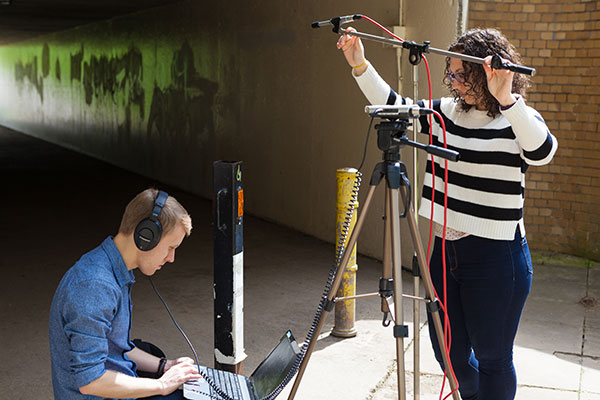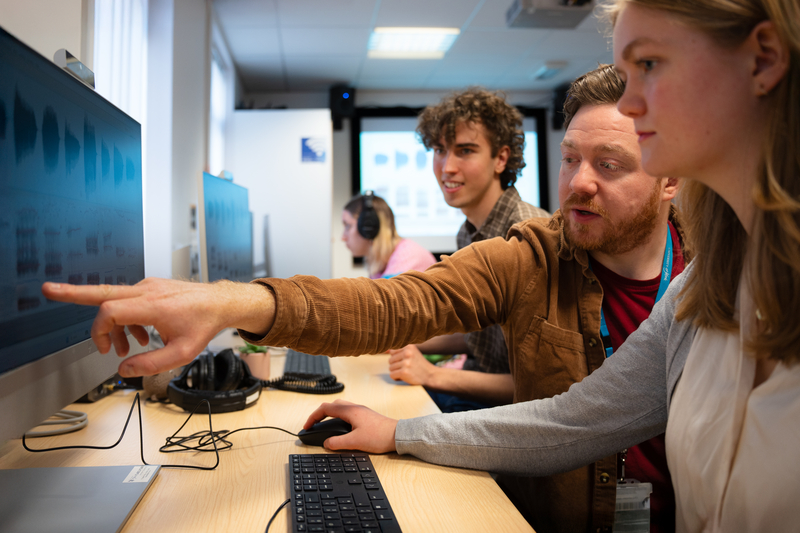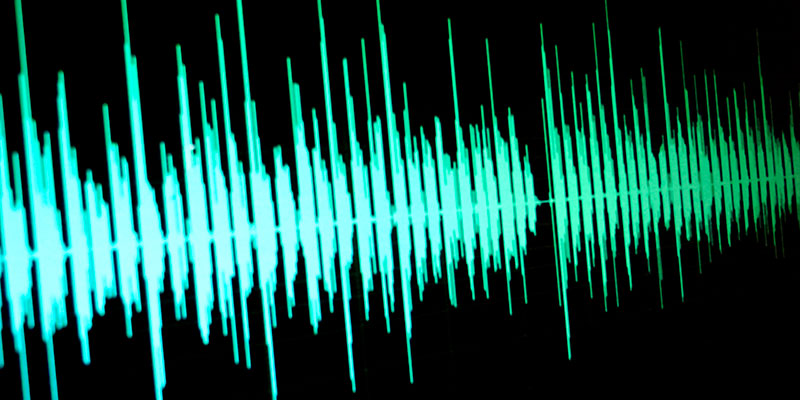
MSc Forensic Speech Science
Learn how to apply linguistics, phonetics and acoustics to legal investigations and proceedings.
Year of entry: 2026 (September)
Forensic Speech Science (FSS) comprises various applications of phonetics, linguistics, acoustics, and computer science to tackling problems in police work or providing evidence in legal cases.
Areas of FSS also overlap with those central to speech and recording technology, and to automatic speaker recognition as used to establish a person’s identity.
The MSc in Forensic Speech Science at York equips you with a comprehensive foundation in the aims, practices, and principles involved in this range of tasks. The learning experience integrates scholarly and professional contexts, allowing you to develop expert witness communication skills and gain hands-on experience of the latest generation of automatic speaker recognition technology, made available through the Department’s partnership with leading speech technology companies.
This course is designed and delivered in partnership with two professional forensic speech and audio laboratories, The Forensic Voice Centre and Forensic Speech Services. Their staff will also contribute to taught modules.
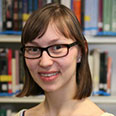
I am interested in comparing recordings in speaker comparison cases and to provide profiles of speakers. It is amazing to analyse speech in its minimal segments and to describe individual characteristics, like voice quality features. I really enjoy the forensic laboratory sessions in which we are working with real case recordings.
Course content
You do not need a prior background in phonetics or linguistics to apply to this course, though the majority of applicants do come from these fields. The programme provides a two-part taught structure leading to a dissertation.
Semester 1 provides a general introduction to the field of FSS, and a grounding in key areas of phonetics and linguistics. Students with little or no background in these subjects take introductory modules; more advanced options are available for those with substantial experience.
In Semester 2 students progress to detailed phonetic and linguistic analysis of speech recordings, which can be applied in the forensic context. Throughout the MSc, students also develop general research skills and conduct independent research for the final element of the programme, the dissertation.
Modules
Core modules
Semester One
Semester Two
Option modules
You will also study two option modules:
- Advanced Phonetics and Phonology or Phonetics and Phonology
- Sociophonetics (or other options as available)
The options available to you in Semester 2 will be confirmed after you begin your course. For further information please get in touch.
Our modules may change to reflect the latest academic thinking and expertise of our staff, and in line with Department/School academic planning.
Dissertation
You'll prepare and write a research dissertation over Semester 2 and the vacation. This will be supervised by a member of staff.
Recent topics for a dissertation have included:
- Electronic voice disguise: witness anonymity
- The phonetics of distress
- The use of hesitation markers
- The effects of ANC technology in mobile phones and effects of listener age on perceived guilt
Learning outcomes
Every course at York is built on a distinctive set of learning outcomes. These will give you a clear understanding of what you will be able to accomplish at the end of the course and help you explain what you can offer employers. Our academics identify the knowledge, skills, and experiences you'll need upon graduation and then design the course to get you there.
Learning outcomes for this course
- Approach with confidence intricate, complex and unfamiliar phonetic and linguistic phenomena, discern and analyse relevant patterns in real data sets, including forensic case data, and convey their significance effectively and with appropriate technical conventions.
- Select and deploy appropriate qualitative and quantitative research methods acquired through the study of forensic speech science to gain a holistic and multifaceted, critical understanding of research in the field.
- Propose creative and principled solutions to forensic problems, appealing to phonetic and linguistic theory where appropriate, and contribute them effectively to written reports.
- Communicate clearly and effectively the nature and relevance of forensic questions and controversies.
- Demonstrate an understanding of the role and responsibilities of the forensic speech scientist as an expert witness
- Use specialist equipment and software for the purposes of recording and analysing speech, manage autonomously the use of this equipment with due respect to professional guidelines and best practice.
- Create detailed and persuasive, academically and ethically informed, project proposals, and initiate, develop and complete a substantial independent research project.
- Manage their own development as researchers and professionals, demonstrating the ability to reflect on their own practice and on feedback received, and seeking assistance where appropriate.
Fees and funding
Annual tuition fees for 2026/27
| Study mode | UK (home) | International and EU |
|---|---|---|
| Full-time (1 year) | £12,500 | £27,250 |
Fees information
UK (home) or international fees? The level of fee that you will be asked to pay depends on whether you're classed as a UK (home) or international student. Check your fee status.
Find out more information about tuition fees and how to pay them.
Funding information
Discover your funding options to help with tuition fees and living costs.
We'll confirm more funding opportunities for students joining us in 2026/27 throughout the year.
If you've successfully completed an undergraduate degree at York you could be eligible for a 10% Masters fee discount.
Funding opportunities
Chevening Scholarships
We are pleased to work with Chevening Scholars to offer funding for our Masters programmes. Chevening Scholarships provide one year of fully-funded postgraduate study in the UK for international (including EU) students. The scholarships are open to early and mid-career professionals who have the potential to become future leaders.
Funding specific to Language and Linguistic Science.
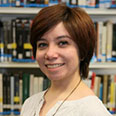
I am interested in looking at transcripts of recordings used as evidence in court. There are many debates as to who is the most qualified to transcribe a difficult recording and what is the best format for both capturing information and presenting to a jury, and I find it fascinating, especially considering how vital a transcript is during a court case.
Teaching and assessment
You’ll work with world‐leading academics who’ll challenge you to think independently and excel in all that you do. Our approach to teaching will provide you with the knowledge, opportunities, and support you need to grow and succeed in a global workplace.
Teaching format
You'll be taught with a mixture of lectures, seminars, workshops and practical training. You'll have approximately three contact hours a week for each module. For some modules, you’ll complete collaborative group work outside your classes. You’ll be set essential reading, and will complete weekly assigned exercises.
Facilities
All of our modules have Virtual Learning Environment (VLE) websites where all crucial materials — reading lists, handouts, discussion boards — are always accessible.
We have our own departmental e-Lab for the teaching and study time of our students. Here you will have access to a variety of resources, including specialist linguistics software, collections of text and speech, and online language-learning materials. Our Forensic Speech Science Lab houses specialist software for analysis of speech and audio recordings.
Teaching location
You will be based in the Department of Language and Linguistic Science on Campus West. Most of your contact hours will be in Vanbrugh College, with some additional teaching on Campus West.
About our campus
Our beautiful green campus offers a student-friendly setting in which to live and study, within easy reach of the action in the city centre. It's easy to get around campus - everything is within walking or pedalling distance, or you can always use the fast and frequent bus service.
Assessment and feedback
You'll complete a variety of assessments, from lab reports, exams, presentations, transcriptions and analysis of speech samples, to case reports and 1,500 or 2,500 word essays. You'll also complete exercises and assignments which do not contribute to your final grade that will give you useful feedback on your progression.
Careers and skills
Successful completion of the MSc entails a solid and detailed grounding in forensic speech science, an introduction to the practical and technical skills to carry out forensic casework, and experience in conducting original research. You'll develop confidence and critical skills, equipping you to exercise independent learning in future careers. The MSc provides excellent training for doctoral research as well as professional forensic speech analysis. It also enables you to develop transferrable skills to an advanced level suitable for entry into a range of professions including police work.
Career opportunities
- academic research
- computing and software development
- emergency services
- forensic speech laboratories
- police
- security services
- teaching
Transferable skills
- research design
- the ability to read, use and present technical material
- data analysis using qualitative, quantitative and statistical methods
- graphic and statistical presentation of data
- writing professional reports
- communication skills in team work and small group work
- time management
- intercultural awareness
Entry requirements
| Qualification | Typical offer |
|---|---|
| Undergraduate degree | 2:2 or equivalent |
| Other international qualifications | Equivalent qualifications from your country |
English language
If English isn't your first language you may need to provide evidence of your English language ability. We accept the following qualifications:
| Qualification | Minimum requirement |
|---|---|
| IELTS (Academic and Indicator) | 6.5, minimum 6.0 in each component |
| Cambridge CEFR | B2 First: 176, with 169 in each component |
| Oxford ELLT | 7, minimum of 6 in each component |
| Oxford Test of English Advanced | 136, minimum 126 in each component |
| Duolingo | 120, minimum 105 in all other components |
| LanguageCert SELT | B2 with 33/50 in each component |
| LanguageCert Academic | 70 with a minimum of 65 in each component |
| Kaplan Test of English Language | 478-509, with 444-477 in all other components |
| Skills for English | B2: Merit overall, with Pass with Merit in each component |
| PTE Academic | 61, minimum 55 in each component |
| TOEFL | 87, minimum of 21 in each component |
| Trinity ISE III | Merit in all requirements |
For more information see our postgraduate English language requirements.
If you haven't met our English language requirements
You may be eligible for one of our pre-sessional English language courses. These courses will provide you with the level of English needed to meet the conditions of your offer.
The length of course you need to take depends on your current English language test scores and how much you need to improve to reach our English language requirements.
After you've accepted your offer to study at York, we'll confirm which pre-sessional course you should apply to via You@York.
Next steps
Contact us
Get in touch if you have any questions
Postgraduate Administrator
Related courses
If you are new to the field or have only minimal prior background:
If you have considerable prior background we offer two specialist MA programmes:
Discover York





